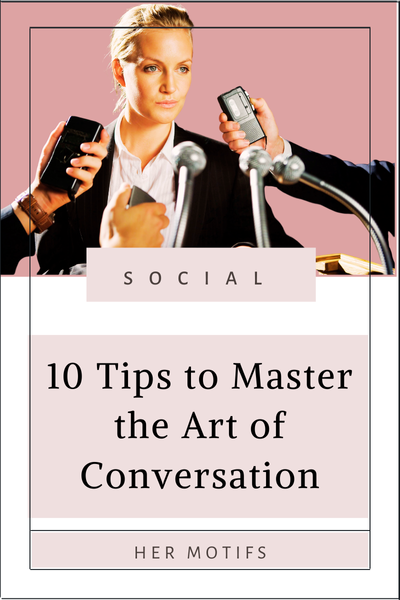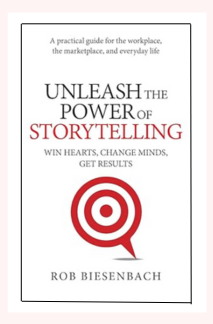10 Tips to Master the Art of Conversation
 Mastering the Art of Conversation means actively listening, asking thoughtful questions, and engaging with genuine interest to build meaningful and memorable connections.
Mastering the Art of Conversation means actively listening, asking thoughtful questions, and engaging with genuine interest to build meaningful and memorable connections.
Whether you’re at a social event, networking, or just catching up with friends, mastering the art of conversation can make you more engaging and memorable.
Mastering the art of conversation is a transformative skill that can profoundly impact your personal and professional life. The essence of this art lies in the ability to engage genuinely and empathetically with others, creating meaningful connections through thoughtful dialogue.
It’s not merely about speaking eloquently but about listening actively, understanding nuances, and responding with authenticity. This mastery involves reading social cues, adapting your communication style to resonate with your audience, and fostering a space where others feel valued and heard. By honing this skill, you enhance your relationships, build trust, and open doors to new opportunities. It’s about creating an environment where conversations become powerful tools for connection and influence, leaving a lasting impact on those you interact with.
Ultimately, mastering conversational art enriches your life by enabling you to navigate social landscapes with grace, making every exchange an opportunity for growth and genuine engagement It’s not just about talking; it’s about connecting. Let’s dive into ten tips to help you become a conversation pro and make every interaction count.
Table of Contents
Tools to Mastering Conversation
Mastering the art of conversation involves being an attentive listener, asking thoughtful questions, and showing genuine interest in others. It’s about striking the right balance between speaking and listening, ensuring that the exchange feels natural and engaging.
.
 Master Your Emotions
Master Your Emotions
This book showcases how to best deal, process and release negative emotions It gives you the power to navigate negative emotions.
- Over 100,ooo copies sold
- 31 simple coping strategies
- A formula to reprogram your mind
- How to make your emotions work FOR you.
- A free downloadable workbook, and much, much more!
.
.
 Personal Development
Personal Development
This book showcases and highlights the best ways to attract people and more importantly develop people skills
- How to change People
- Six ways to make people like you
- How to win people to your way of thinking
- Inspirational personal development guide
- Fundamental techniques in handling people
- Provides an authoritative program for developing the basic and essential people skills
.
 Power of Storytelling
Power of Storytelling
Win Hearts, Change Minds and Get Results
- The to go authority for ambitious leaders
- Impact your career as much as becoming a masterful storyteller
- Step-by-step instructions for finding, shaping and telling powerful stories
- Practical roadmap to crafting and delivering more powerful, persuasive stories
.
.1. Start with a Warm Greeting
A great conversation starts with a friendly greeting. Beginning your day with a warm greeting sets a positive tone for the hours ahead. Whether it’s a cheerful “Good morning!” to yourself in the mirror or a friendly wave to a loved one, this small act of kindness can uplift your spirits and foster a sense of connection.
A warm greeting is not just about politeness; it’s a way to embrace the day with optimism and openness. By starting your day with this simple, positive gesture, you cultivate a mindset of warmth and approachability, which can influence how you interact with others and how you experience your day.
.
2. Ask Open-Ended Questions
Open-ended questions encourage more than just yes or no answers—they invite deeper responses. Asking open-ended questions is a powerful way to enhance your communication skills and deepen your connections with others. Unlike yes-or-no questions, open-ended questions invite more detailed responses and encourage a richer dialogue.
For instance, instead of asking, “Did you have a good weekend?” try, “What was the highlight of your weekend?” This approach not only shows genuine interest but also helps you understand the other person’s perspective and feelings more fully. By fostering open and meaningful conversations, you build stronger relationships and create an environment where ideas and emotions can be shared more freely
.
3. Be an Active Listener
Active listening is crucial for a great conversation. Being an active listener is key to effective communication and building strong relationships. This means truly focusing on the speaker, not just hearing their words but also understanding the underlying emotions and intentions.
Practice active listening by maintaining eye contact, nodding, and providing verbal affirmations like “I see” or “That makes sense.” Avoid interrupting and allow the speaker to express themselves fully before responding. By showing genuine interest and empathy, you not only validate the speaker’s experience but also foster trust and open dialogue, leading to more meaningful and productive conversations.
.
4. Adapting Your Communication Style
Adapting your communication style to fit different situations and individuals is essential for effective interactions. Tailoring your approach means being aware of the other person’s preferences, whether they lean towards a formal or informal tone, prefer direct or nuanced feedback, or respond better to visual or verbal information.
By observing and responding to these cues, you can foster a more comfortable and productive dialogue. For instance, if someone appreciates a more detailed explanation, take the time to elaborate, whereas if they prefer brevity, keep your points concise. Adapting your style demonstrates empathy and respect, making your interactions more engaging and successful..
.
5. Show Genuine Interest
People love talking to those who are genuinely interested in them. Showing genuine interest in a conversation is key to building strong connections and fostering meaningful dialogue. When you actively listen and engage with curiosity, you convey that you value the other person’s thoughts and experiences.
This can be achieved by asking thoughtful questions, providing affirming feedback, and expressing sincere enthusiasm about their stories or insights. By focusing on what the other person is sharing and responding with genuine interest, you create a more engaging and respectful exchange. This not only makes the conversation more enjoyable for both parties but also strengthens your relationship and builds trust
.
6. Use Body Language Wisely
Your body language speaks volumes. Using body language wisely enhances communication by reinforcing your engagement and understanding through cues like eye contact and open posture. Aligning these non-verbal signals with your words builds trust and clarity in interactions. Creating mindful habits, such as meditation and deep breathing, further supports this by helping you stay grounded and present. These practices reduce stress and improve overall well-being, transforming how you respond to challenges and interact with others. By integrating mindful habits with thoughtful body language, you foster a more intentional and fulfilling life.
.
7. Master the Art of Small Talk
Small talk might seem trivial, but it’s a great way to ease into deeper conversations. Mastering the art of small talk is crucial for building connections and easing into deeper conversations. Start with friendly, open-ended questions about neutral topics like the weather or recent events to break the ice.
Show genuine interest by actively listening and responding thoughtfully, which helps the conversation flow naturally. Use light humor and share brief, relevant anecdotes to keep the mood engaging and comfortable. By practicing these techniques, you create a positive interaction that can lead to more meaningful connections.
.
8. Be Mindful of Your Tone
Your tone of voice can significantly impact how your message is received. Being mindful of your tone is essential for effective communication and ensuring your message is received as intended. Your tone of voice can convey emotions and attitudes, sometimes more strongly than words alone. Whether you’re expressing enthusiasm, empathy, or concern, ensure your tone matches your message to avoid misunderstandings.
Pay attention to how your tone might affect the listener’s perception and adjust it to maintain a positive and respectful interaction. By being aware of your tone, you enhance clarity and build better connections in conversations
.
9. Handle Conflicts Gracefully
Disagreements can arise in conversations, but handling them gracefully is key. Handling conflicts gracefully involves approaching disagreements with empathy and respect. Start by listening actively to understand the other person’s perspective without interrupting. Express your own views calmly and clearly, focusing on the issue rather than personal attacks. Seek common ground and work collaboratively towards a resolution that satisfies both parties. By managing conflicts with poise and understanding, you maintain positive relationships and foster constructive solutions.
.
10. Know When to End the Conversation
Knowing when to gracefully end a conversation is just as important as starting it. Knowing when to end a conversation is crucial for maintaining a positive and respectful interaction. Pay attention to cues like body language or verbal signals that suggest the other person is ready to wrap up.
If the conversation is reaching a natural conclusion or if you sense that continuing might lead to discomfort or disinterest, it’s courteous to politely close the discussion. Express appreciation for the exchange and offer a friendly farewell, which leaves a positive impression and keeps the door open for future conversations. By recognizing these signals and ending conversations thoughtfully, you enhance your communication skills and relationships.
.
Conclusion
In conclusion, mastering the art of conversation is a powerful tool that can enhance your personal and professional relationships. By actively listening, asking insightful questions, and engaging with authentic interest, you not only create more meaningful connections but also foster a deeper understanding and mutual respect. These skills can transform everyday interactions into opportunities for growth, collaboration, and genuine connection. So, embrace the art of conversation with confidence, and watch how it enriches your interactions and opens doors to new possibilities.
- 100 Valentine Lovers Questions - February 24, 2025
- 2025 New Year Growth Quotes - February 24, 2025
- 2025 Inspiring Self Love Quotes - February 24, 2025






